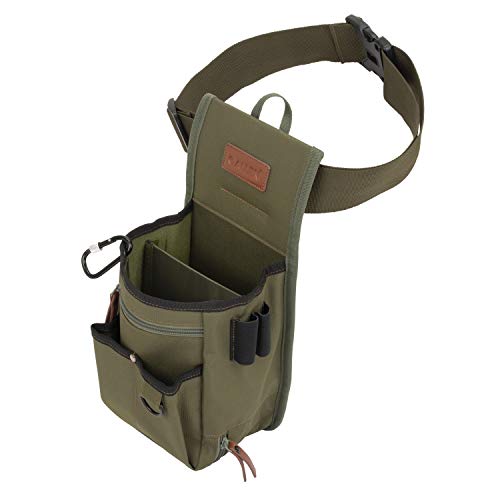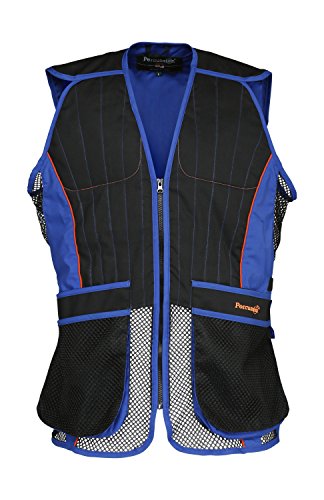You are using an out of date browser. It may not display this or other websites correctly.
You should upgrade or use an alternative browser.
You should upgrade or use an alternative browser.
Measuring the speed of different cartridges
- Thread starter Davy_B
- Start date

Help Support Clay, Trap, Skeet Shooting Forum:
This site may earn a commission from merchant affiliate
links, including eBay, Amazon, and others.
Not an easy thing to do as you need better equipment than your average guy would wish to spend money on but needless to say the speeds are pretty much never as claimed.so has anyone here measured the speed of their cartridges using a chronograph ?
id like to do it purely out of curiosity to see if it does what it says on the tin . be interested to see if anyone here has done it ?
ips
Well-known member
- Joined
- Jul 19, 2012
- Messages
- 15,642
yes I have, the mfrs record muzzle velocity whereas using a chrono it is observed velocity at about two metres. The difference is quite a bit lower. The main thing you notice is the inconsistency of budget loads and the consistency of expensive loads. We concluded after having chronod a dozen or so different makes and models that you pay for consistency.

$135.45
Walker and Hawkes - Men's Derby Tweed Barrington Shooting Gilet - Dark Sage - X-Large
Walker & Hawkes

$150.45
Walker and Hawkes - Men's Derby Tweed Warrington Shooting Gilet w/Shoulder Patch - Light Sage XL
Walker & Hawkes

$27.17
$29.99
Shooter's Bible 116th Edition: The World's Bestselling Firearms Reference
Amazon.com

$9.43
$9.99
Skeet Shooting USA Flag Trap Shooting Clay Pigeon Unisex Baseball Cap Cotton Fits Men Women Washed Denim Adjustable Dad Hat
yigaoshangmaoyouxiangongsi

$75.99
10L0L Universal Golf Cart Gun Holder 50 Degree Rotatable Compatible with Golf Cart Club Car EZGO UTV ATV Stand Up Gun Rack Gun Mount
Accessories for Club Car by 10L0L

$84.99
$90.00
White Flyer Clay Pigeon Trap and Skeet Targets 90 Count (Pack of 2) with White Flyer Scorecard
Prime Merchant LLC

$23.20
$24.95
Straight Shooting for Hunters: A Champion’s Guide to Using Shotguns in the Field
Amazon.com

$38.25
$44.95
Champion Range and Target High Fly String Release Manual Trap for Clay Shooting
Amazon.com
ips
Well-known member
- Joined
- Jul 19, 2012
- Messages
- 15,642
I am not sure is the honest reply. The chrono we used was a friends
as an aside shooting in a rifle sort of way as in stationary also gave considerably better feedback from the load. The shooter could on occasions feel a difference in recoil from the same batch, these higher recoil shells were the inconsistent budget loads were the speed could vary by 100fps
as an aside shooting in a rifle sort of way as in stationary also gave considerably better feedback from the load. The shooter could on occasions feel a difference in recoil from the same batch, these higher recoil shells were the inconsistent budget loads were the speed could vary by 100fps
Yes Ian, you get what you pay for with shells as with many other things!!! Budget loads can often be punchy and dirty, the patterns can also leave much to be desired!!! If you want quality and consistency then you generally have to pay for it.I am not sure is the honest reply. The chrono we used was a friends
as an aside shooting in a rifle sort of way as in stationary also gave considerably better feedback from the load. The shooter could on occasions feel a difference in recoil from the same batch, these higher recoil shells were the inconsistent budget loads were the speed could vary by 100fps
Wonko the Sane
Well-known member
Some good info here
http://www.trapshooters.com/threads/chronograph-for-shotgun-shells.448945/
EDIT there are a number of links to previous discussions at the bottom of that page
the links to Neil Winston's work in his posts are particularly worthwhile. Mr. Winston has an established rep as one who tells unfortunate truths.
http://www.trapshooters.com/threads/chronograph-for-shotgun-shells.448945/
EDIT there are a number of links to previous discussions at the bottom of that page
the links to Neil Winston's work in his posts are particularly worthwhile. Mr. Winston has an established rep as one who tells unfortunate truths.
Last edited by a moderator:
Well the speeds achieved by manufacturers may well be higher than someone testing them selves BUT the manufacturers test to an agreed test procedure using the correct instrument for the job ... I'll take their word for it over a back garden test. One other thing a difference of even ten per cent in velocity will make no difference whatsoever to most shooters hitting the target it is so small as to be of no significance I think I calculated 75mm at 35m on a crossing target . Of course the difference in velocity may have an effect on the ability to break the target but I personally don't think that ten per cent would make a difference to say a trap shooter who is hitting his targets at virtually the same distance with every shot. OMO though
Wonko the Sane
Well-known member
Difficult to argue with any of that. I admit that I'm fond of fast but I've just never felt the need to chrono anything. I'm not convinced that the knowing would add anything of value. If I can rely in a general way on the published data that's good enough for the likes of meWell the speeds achieved by manufacturers may well be higher than someone testing them selves BUT the manufacturers test to an agreed test procedure using the correct instrument for the job ... I'll take their word for it over a back garden test. One other thing a difference of even ten per cent in velocity will make no difference whatsoever to most shooters hitting the target it is so small as to be of no significance I think I calculated 75mm at 35m on a crossing target . Of course the difference in velocity may have an effect on the ability to break the target but I personally don't think that ten per cent would make a difference to say a trap shooter who is hitting his targets at virtually the same distance with every shot. OMO though
JMO of course
paul b
Well-known member
Here's one to pickle the mind,a very good AAA shot used some joker shells and thought they were a similar speed to his expensive usual ones untill he compared the manufacturer specs,aparently one was a lot slower than the other but he couldnt tell.Now for the strange bit,it was sudgested the time from trigger to kill was the same on both shells because one burnt slower than the other.
No real point to this ramble but if you like filling your mind with useless info that wont help your shooting,then you'll enjoy it.
Holianl for you below
No real point to this ramble but if you like filling your mind with useless info that wont help your shooting,then you'll enjoy it.
Holianl for you below
Last edited by a moderator:
ips
Well-known member
- Joined
- Jul 19, 2012
- Messages
- 15,642
makes senseHere's one to pickle the mind,a very good AAA shot used some joker shells and thought they were a similar speed to his expensive usual ones untill he compared the manufacturer specs,aparently one was a lot slower than the other but he couldnt tell.Now for the strange bit,it was sudgested the time from trigger to kill was the same on both shells because one burnt slower than the other.
No real point to this ramble but if you like filling your mind with useless info that wont help your shooting,then you'll enjoy it
Not getting embroiled in carts again BUT if there is truth in this... and that does not mean that I doubt what you have quoted in any way, IMO it justifies what I have said for quite some time. If you can see the manufacturers name on the packaging you automatically start to attribute phenomenon's to something that in all honesty is next to undetectable. If on the other hand in a true test ie one in which the participant does not know what they have been given but nonetheless tries their very best to get the best result possible we very often see results that give something attributes we would not have expected had they known before hand what we were using. Now that statement works two ways but for the case of cartridges I am stating the cheaper cartridge will perform much better than their cost would suggest when compared to an expensive cartridge.Here's one to pickle the mind,a very good AAA shot used some joker shells and thought they were a similar speed to his expensive usual ones untill he compared the manufacturer specs,aparently one was a lot slower than the other but he couldnt tell.Now for the strange bit,it was sudgested the time from trigger to kill was the same on both shells because one burnt slower than the other.
Holianl
Well-known member
- Joined
- Mar 6, 2017
- Messages
- 253
Jezek
Active member
Here's a link to NW's whole report on chrongraphing shotshells; it has some tips that may save others time, effort, and costs.
http://www.claytargettesting.com/study2/pages/study2a.html
If you go to the main page of the site - claytargettesting.com - you are sure to find something to interest or enrage you.
Jezek
http://www.claytargettesting.com/study2/pages/study2a.html
If you go to the main page of the site - claytargettesting.com - you are sure to find something to interest or enrage you.
Jezek
Last edited by a moderator:
chippy
Well-known member
I've been told that the storage temperature of the cartridge makes a huge difference to the speed.
i dont know about speed but i find they are cleaner burning ie leave leave deposits in the barrel if they are kept at room temp (18-22 deg c)I've been told that the storage temperature of the cartridge makes a huge difference to the speed.
Last edited by a moderator:
Similar threads
- Replies
- 2
- Views
- 706
- Replies
- 24
- Views
- 3K

































